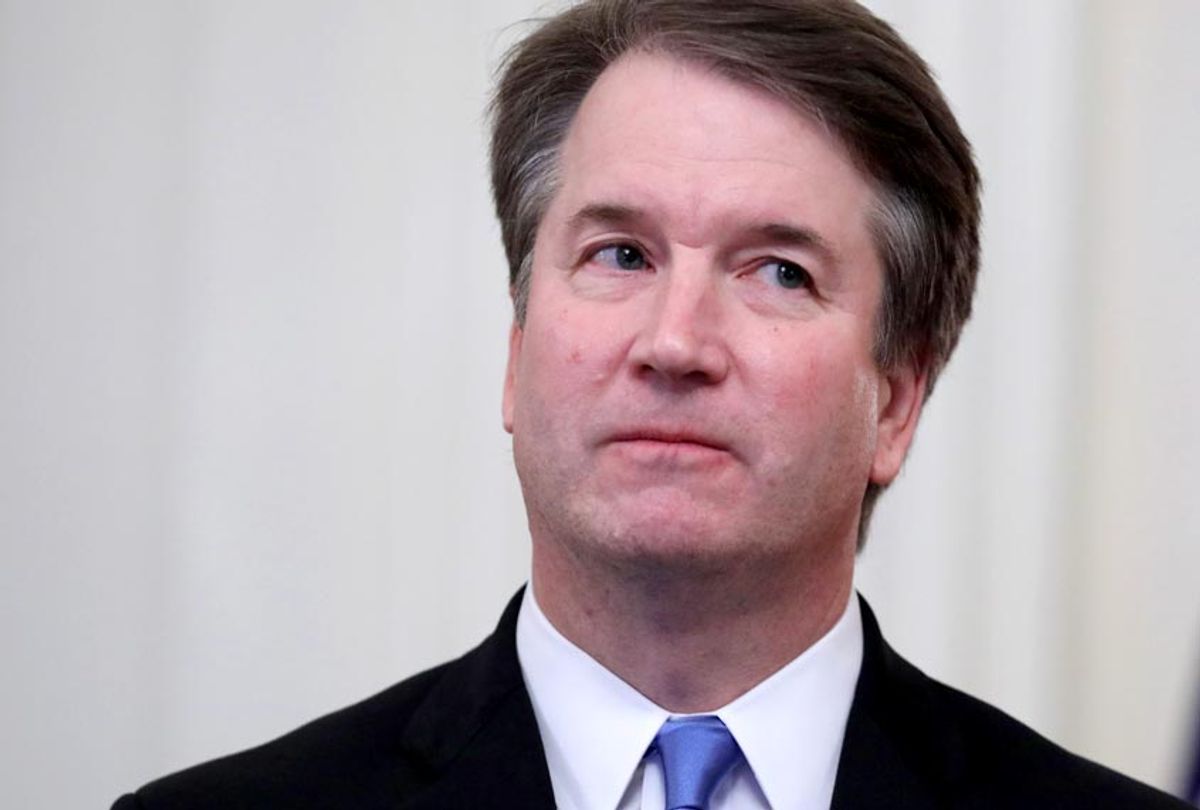When Justice Brett Kavanaugh joined the U.S. Supreme Court in 2018, a right-wing Reagan nominee was replaced by a right-wing Trump nominee. And journalist Sam Baker, in a March 2 article for Axios, notes that Kavanaugh is getting ready to weigh in on his first major case dealing with abortion rights.
The libertarian Kennedy has often been lambasted by liberals and progressives for his vote in the Citizens United decision, but when it came to "culture war" issues like abortion, same-sex marriage and sodomy laws, Kennedy was likely to agree with Justice Ruth Bader Ginsburg rather than Justice Clarence Thomas or the late Justice Antonin Scalia. While social conservatives had a very low opinion of Kennedy, they have high hopes for Kavanaugh — who, Baker explains, will be evaluating the constitutionality of a Louisiana law that "requires abortion providers to have admitting privileges at a nearby hospital."
"The state says those rules ensure women's safety in the event something goes wrong," Baker reports. "Challengers say they simply force clinics to close without providing any demonstrable benefit to women."
The Louisiana Law, Baker observes, is "nearly identical to" a Texas law that the U.S. Supreme Court struck down as unconstitutional in 2016, asserting that the law placed an "undue burden" on abortion access. But the big difference, Baker stresses, is that "those were the Anthony Kennedy days."
Baker explains, "If the Court ultimately says its Texas decision controls this case, and invalidates (Louisiana's) admitting-privileges requirement on those grounds, that would largely preserve the status quo….. If the state wins, though, and the Court rules that its Texas decision does not bind other states, then more states will quickly pursue new abortion restrictions and even revive rules they thought the Supreme Court had foreclosed. It also could send a broader signal about the Court's appetite for abortion cases."
Baker points out that the Louisiana case could "make abortion rights — as well as the Court itself — an even bigger issue in the 2020 campaign." Although Baker is mainly referring to the presidential race, U.S. Senate and House races could be affected by the abortion issue as well.
When Sen. Susan Collins of Maine voted in favor of Kavanaugh's confirmation in 2018, the Maine Republican insisted that President Donald Trump's nominee viewed Roe v. Wade as "settled law." But if Kavanaugh does ultimately vote to overturn Roe v. Wade as so many abortion rights defenders fear, it would show how wrong Collins was. Collins enjoyed landslide reelections in the past and was a very popular senator in her state, but in 2020, she is fighting a tough reelection battle — and Maine Democrats have been citing her pro-Kavanaugh vote as a reason why Collins needs to be voted out of office.
The Supreme Court will begin hearing arguments in the Louisiana case this Wednesday, March 4, although a decision isn't expected until June.




Shares